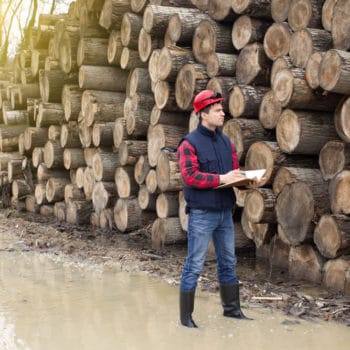Why We Love It
-
$66,020Potential Avg. Salary
-
2.4%Job Growth Rate
-
Growing DemandJob Outlook
-
Good Money From TipsCareer Attribute
A pipeline operator mainly executes maintenance or repair work on pipelines and monitors supporting infrastructure such as storage tanks or pump stations. They patrol to carry out visual inspections and find leakages, or spend time on the surveying and development of new pipeline.
Recommended Schools
What is an Oil Pipeline Job?
Duties
Professional oil pipeline workers execute many important mechanical, technical, and electrical tasks including those listed below:
- Enforces preventative maintenance standards or processes to reduce repair costs for system tanks and other equipment.
- Patrolling oil and gas pipelines to carry out visual inspections and carrying out repairs in case of leakages, breaks in joints and other telecommunication damages such as downed poles or wires.
- Maintain and assist with promoting a safe working environment for all oil and gas operators and technicians; report any unsafe conditions.
- Schedules regular surveys of pipelines and other relevant machinery at the work site.
Day in the life
A day in the life of a pipeline operator can involve many duties. Pipelines are the most efficient and cost-effective means to transport oil and gas to or from refineries, over varying distances. The work of a pipeline operator is crucial here. It is the pipeline operator’s job to ensure that these pipelines function at an optimal level, taking on maintenance and repair work as required.
Some of the major work on a daily basis includes providing support for a variety of operating skills such as setting and verifying valve and manifold line-ups, keeping equipment in working order, changing orifice plates and blinds, proving the meters, and assessing protection systems. You may have to regulate oil or gas flow out of storage tanks or keep track of instruments in coordination with other technicians on the team. In addition, your work can lead to sitting in front of a computer and assessing temperature and pressure levels in a control room.
As a pipeline operator, you are expected to oversee various support infrastructure on the frontlines – running electronics, cars and machinery efficiently. You will also have to use written, oral and listening communication skills in performing daily work and collaborating with other employees. In your role, there may be processes that involve the use of hazardous and volatile materials under high temperature and pressure.
Work schedule and typical hours
Pipeline operators have to work in industrial environments, such as power plants, gas distribution facilities and oil refineries. Due to a general shortage of labour in the oil industry, people often work only 6 months in a year. Most short-term jobs are executed over winter sessions during the peak construction period. Hours may vary and the remote locations lead to employers arranging for room and board on-site. Working conditions for the typical pipeline operator can include outside weather and elements, heat, pressure, noise, vibration, rotating equipment, and occasionally working from heights and confined spaces.
Growth of the job
The economic benefits of oil and gas will continue to favour this job sector, leading to hundreds of construction jobs and the need for technical expertise. Job openings in the oil pipeline sector are projected to see moderate growth between 2014-2024. According to the U.S. Bureau of Labour Statistics, the market will see an increased demand in the number of pipeline transportation jobs by 14 percent up to 2020.
Typical employers
Of all the industries in the world, the petroleum industry has huge potential for jobs. Typical employers of pipeline operators include leading integrated energy companies with subsidiaries, oil and gas extractors and refiners – e.g. Marathon Petroleum, ExxonMobil, Genesis Energy, Western Refining, Kinder Morgan and so on. There is no dearth of jobs and there are opportunities available in states around the country.
Recommended Schools
How To Become an Oil Pipeline Job
A college education is not necessary to find a job at an oil pipeline. In fact, there are no specific training requirements for becoming an oil and gas pipe-liner. Usually, many companies hire candidates with little to no experience and provide them with on-the-job training and apprenticeships. To be successful in this line of work though, aspiring oil pipeline operators must possess superior communication skills, embrace physical challenges and be able to think on their feet.
In order to work in positions related to the power grid, one must receive certification from Energy Reliability Corporation. In order to obtain this, you have to complete the examination and it is valid for three years.
Possessing post secondary education or a degree in engineering will give you a competitive edge in the oil industry, as will some background in math, safety, mechanical technology, Instrumentation, etc. To stand out from the competition, getting an associate’s degree or a certificate diploma can be beneficial. A valid driver’s license with no DWI or DUI is often a requirement, as you may have to operate vehicles at the project site.
Oil Pipeline Job Salary Data
We’ve provided you the following to learn more about this career. The salary and growth data on this page comes from recently published Bureau of Labor Statistics data while the recommendations and editorial content are based on our research.
National Anual Salary
Low Range
$51,430Average
$66,020High Range
$94,120National Hourly Wage
Low Range
$25/hrAverage
$32/hrHigh Range
$45/hrHow do Oil Pipeline Job salaries stack up to other jobs across the country? Based on the latest jobs data nationwide, Oil Pipeline Job's can make an average annual salary of $66,020, or $32 per hour. On the lower end, they can make $51,430 or $25 per hour, perhaps when just starting out or based on the state you live in.
Salary Rankings And Facts
#220 Nationally for All Careers
Above Average Salary Nationally
Programs and Degrees
Here are the most common degrees for becoming an Oil Pipeline Job. a is usually recommended and specifically a degree or coursework that prepares you for the particular field, see below.
Highest Education Among Oil Pipeline Jobs
- 0.5% Doctorate
- 0.6% Masters
- 11.6% Bachelors
- 11.7% Associates
- 32.3% College
- 38.1% High School
- 5.1% Less than High School
Job Growth Projections and Forecast
2014 Total Jobs
42,4002024 Est. Jobs
43,400Job Growth Rate
2.4%Est. New Jobs
1,000How does Oil Pipeline Job job growth stack up to other jobs across the country? By 2024, there will be a change of 1,000 jobs for a total of 43,400 people employed in the career nationwide. This is a 2.4% change in growth over the next ten years, giving the career a growth rate nationwide of Above Average.
Growth Rankings And Facts
#541 Nationally for All Careers
Above Avg. Growth Nationally
What Companies Employ The Most Oil Pipeline Jobs
| Industry | Current Jobs | New Jobs Needed | % Increase |
|---|---|---|---|
| Petroleum and coal products manufacturing | 19,400 | -400 | 0% |
| Oil and gas extraction | 6,100 | 700 | 1% |
| Support activities for mining | 4,500 | 700 | 1% |











